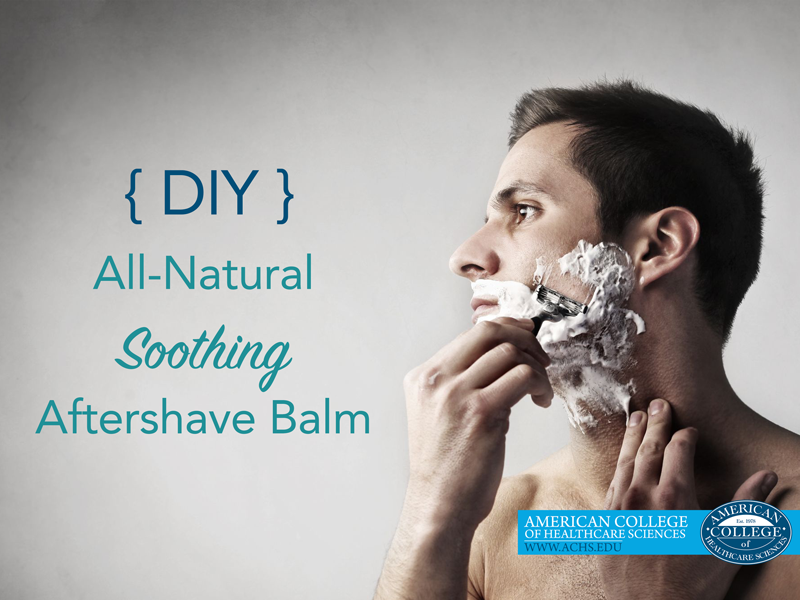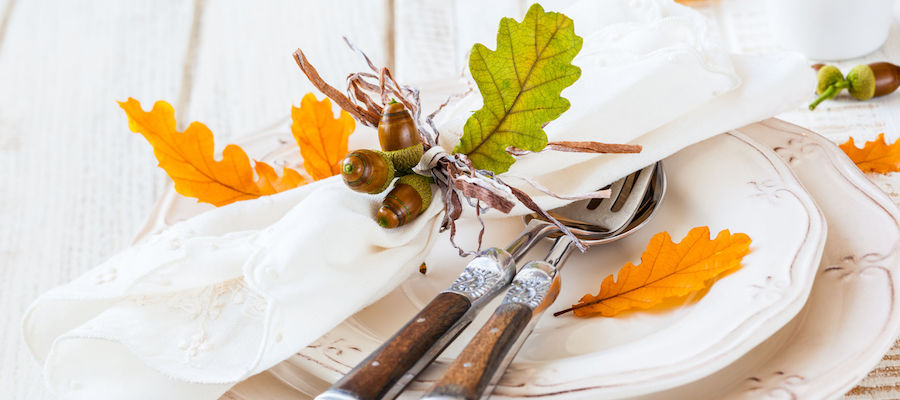Essential oils are an eco-friendly way to repel insects naturally without using harmful sprays or pesticides. In one of our previous blogs on tips for green cleaning with essential oils, ACHS Founding President Dorene Petersen discusses the harms of chemical cleaners and pesticides.
Summer is the perfect time of year to relax on the porch, sip some lavender iced tea, and watch the sun slowly dip behind the tree line. But if there’s one thing that can ruin your summer bliss, it’s mosquitoes and other creepy crawlies lurking around your home!
Chemical cleaners and pesticides can be a major setback for your green cleaning goals, but luckily, there's another way to get rid of bugs: the natural way!
As with all of ACHS’s favorite green cleaning solutions, we use the natural insecticidal powers of essential oils. You can learn more about the everyday benefits of essential oils and aromatherapy in our free Aromatherapy eBook!
Here are 10 powerful essential oils that naturally repel insects:
1. Lavender
Botanical Name: Lavandula angustifolia (Mill.)
When you think of lavender, rest and relaxation are usually the first things that come to mind. But along with its soothing floral aroma, this powerhouse essential oil is also effective at battling bugs.
Lavender pillows and sachets are wonderful in linen cupboards and dressers and will keep away moths and other insects while leaving a fresh scent. Lavender oil can be sprayed from an atomizer or left in a saucer to help keep away ants and insects and disinfect the air.
2. Basil
Botanical Name: Ocimum basilicum (L.)
Basil in the summer is a double threat: ideal for adding zest to your tomato sauce and controlling the summer pests!
Basil essential oil is particularly effective if you live in a wet climate with many lakes and ponds. One study showed O. basilicum exhibiting both mosquito-repellent and larvicidal activity.
Basil is an uplifting oil, so add some to an atomizer and spray outside for a natural mosquito repellent and a well-deserved mood boost!
Additionally, if you suffer from indoor allergies on rainy summer days, a 2014 study also concluded that practical dust mite control can be achieved with basil oil. Yet another reason to clean green with versatile essential oils!
3. Thyme
Botanical Name: Thymus vulgaris (L.)
Anyone who’s ever lived on a farm knows that the common housefly can be one of the most aggravating creatures on the planet. Lucky for us, thyme has been found to be a highly effective insecticide against houseflies. A 2005 study also found thyme to be an excellent mosquito repellent. A win-win situation for pest control thyme!
4. Pine
Botanical Name: Pinus sylvestris (L.)
If you want to enjoy a camping trip without using Deet or other chemical bug sprays, pine is your perfect companion. A natural repellent against mosquitoes, pine will also keep you smelling fresh as the forest!
5. Vetiver
Botanical Name: Vetiveria zizanioides (Nash)
In Java, Indonesia, sustainable vetiver essential oil production has produced a viable vetiver craft industry with items such as aromatic mats, baskets, candles, and soaps—all produced from the spent root!
Vetiver acts as a natural mosquito deterrent in the house. Diffusing a few drops of this oil will help repel the mosquitoes and create a Balinese ambiance for summer.
6. Bergamot
Botanical Name: Citrus aurantium var. Bergamia (Risso)
Nothing says “summer” quite like citrus! Bergamot is a great oil to use for green cleaning, and it’s also the perfect addition to your natural insect-repellent spray. It can add a mood-boosting, fruity lift to any recipe you like.
It’s important to note that bergamot is very phototoxic, so you should not use it outside as a topical insect repellent but rather as an aromatic insect repellent spray. For a more detailed guide to essential oil safety and photosensitivity, download our Essentials of Essential Oil Safety eBook!
If the bugs start biting on those long summer evenings, bergamot is a wonderful oil for topical use on insect bites or stings. Just remember to keep out of the sun!
7. Peppermint
Botanical Name: Mentha x piperita (L.)
If you would rather have a fresh and minty aroma in your bug spray than an aggressive chemical smell, peppermint is the perfect choice. Peppermint is a natural insecticide that kills and repels mosquitoes.
In one study, M. ×piperita showed repellent action when applied to exposed body parts. It also displayed significant larvicidal and mosquito repellent action: Larvae of Culex quinuefasciatus were completely killed 24 hours after exposure (in water) to 3 ml of M. ×piperita per square meter of water.
Peppermint is also useful for insect stings and bites!
8. Tea Tree Australia
Botanical Name: Melaleuca alternifolia (Cheel)
Will the wonders of Australian tea tree oil ever cease? Tea tree is not only a green cleaning powerhouse, but it is also antiparasitic, capable of destroying or suppressing the growth of parasites such as fleas, leeches, lice, and ticks.
Use diffusion or direct topical application. Like bergamot and peppermint, if those nasty critters do start biting, the Australian tea tree can help calm the irritation from bites or stings.
9. Eucalyptus
Botanical Name: Eucalyptus globulus (Labill.)
A standard in any natural green cleaning kit, your eucalyptus essential oil can also be used as an insecticide.
In a 2010 study, three species of eucalyptus (E. staigeriana, E. citriodora, and E. globulus) were tested for use in fighting the blood-sucking sandfly, lutzomyia Lutzomyia longipalpis. Researchers found that eucalyptus essential oils were more effective against L. longipalpis than other natural products.
10. Lemon Eucalyptus
Botanical Name: Eucalyptus citriodora (Hook)
Lemon eucalyptus E. citriodora can be used as a natural insecticide—especially for those who love that citrusy smell for summer!
It was also discovered that the distillate or hydrosol was very effective against mosquitoes and not as volatile as the essential oil. This could be a great essential oil mosquito repellent option for use around children and pets since the hydrosol, while milder, still provides very high protection from a broad range of insects over several hours.
Natural Recipes
Now that you have your collection of oils ready to protect you from the bites and stings of summer, here are a few of our favorite natural recipes to keep those bugs at bay.
Insect Stings and Bites Recipe
- Tea tree Australia Melaleuca alternifolia: 10 drops
- Peppermint Mentha piperita: 10 drops
Combine the oils and apply to the affected area undiluted as needed.
Natural Insect Repellent Spray Recipe
- 15 drops of Lavender Oil Lavandula angustifolia
- 10 drops of Lemon Oil eucalyptus Eucalyptus citriodora
- 10 drops of Tea Tree Oil Australia Melaleuca alternifolia
- 6 drops of Lime Oil Citrus aurantifolia
- 6 drops of Bergamot Oil Citrus aurantium var. bergamia
- 2 ounces of Distilled water
- 2 ounces of Vinegar from your kitchen (White vinegar or apple cider will work!)
Blend all the ingredients and put them into a spray bottle. Shake well before using.
Note: Both bergamot and lime are photosensitive oils. This is an aromatic blend meant to be diffused into the air around you and is not intended for topical or internal use.
Stay Green and Clean with ACHS
If you love the smell of green cleaning recipes and essential oil insect repellent, then why not bring the healing power of aromas into your everyday life?
Our Aromatherapy programs are designed to teach you the ways that aromatic plant materials can be used to promote and support the balance of physical, mental, and emotional health.
Are you ready to start using the power of plants to bring health to your home and your body? Chat with an advisor today!
This article is for informational purposes only. It is not intended to treat, diagnose, cure, or prevent disease. This article has not been reviewed by the FDA. Always consult with your primary care physician or naturopathic doctor before making any significant changes to your health and wellness routine.




